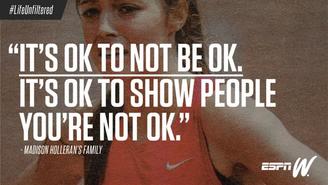
"The life Madison projected on her own Instagram feed was filled with shots that seemed to confirm everyone's expectations: Of course she was loving her first year of college. Of course she enjoyed running. Her mom remembers looking at a photo on her feed and saying, "Madison, you look like you're so happy at this party."
"Mom," Madison said. "It's just a picture."
Everyone presents an edited version of life on social media. People share moments that reflect an ideal life, an ideal self. Hundreds of years ago, we sent letters by horseback, containing only what we wanted the recipient to read. Fifty years ago, we spoke via the telephone, sharing only the details that constructed the self we wanted reflected.
With Instagram, one thing has changed: the amount we consume of one another's edited lives. Young women growing up on Instagram are spending a significant chunk of each day absorbing others' filtered images while they walk through their own realities, unfiltered...
Instagram is passed off as real life.
Yes, people filter their photos to make them prettier. People are also often encouraged to put filters on their sadness, to brighten their reality so as not to "drag down" those around them. The myth still exists that happiness is a choice, which perpetuates the notion of depression as weakness."
 RSS Feed
RSS Feed
